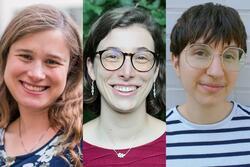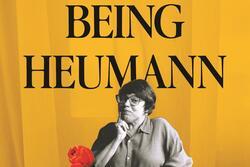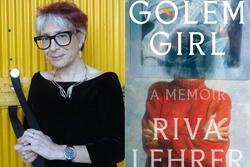7 Questions For Rabbi Lauren Tuchman
JWA chats with rabbi and disability justice advocate Lauren Tuchman.
JWA: What was your journey like to become a member of the clergy? Was there a moment in your life that made you say, “Hey, I think I want to be a rabbi?”
Rabbi Lauren Tuchman: It’s hard to narrow it down to just one. I had a sense for a while that I wanted to be a changemaker and of service, and felt that being immersed in Torah and tradition would allow me both to teach—which I love—as well as advocate for the kind of inclusive community I yearned for.
JWA: Who are some of your Jewish feminist icons?
RLT: RBG of course!! In addition to her, I am grateful every day for the women who came before me in the rabbinate, whether they had that title or not. I am particularly inspired by women like Asnat Barazani, who was a rosh yeshiva (head of a yeshiva) in the sixteenth century. I am grateful every day to be in community with incredible rabbis like Rabbi Dr. Julia Watts Belser, Rabbi Avigayil Halpern, Rabba Dorothy Richman, and Rabba Tamar Elad-Appelbaum. And last but certainly not least, Judy Heumann, may her memory be for a blessing, who was a trailblazing Jewish disability activist.
JWA: What’s a piece of Torah that surprised you?
RLT: I always strive to elevate feminist Torah and bring forward aspects of Jewish practice that don’t often get the attention they deserve. To that end, I cannot narrow it down to just one piece of Torah, so I’m bringing two! Loving Our Own Bones: Disability Wisdom and the Spiritual Subversiveness of Knowing Ourselves Whole by Rabbi Dr. Julia Watts Belser is a book of disability Torah that has made me feel so much kinship. It’s changed my life. Another is Rabbi Dr. Jill Hammer’s fabulous book of midrashic stories, Sisters at Sinai.
JWA: You’re in the unique position of being the first blind woman to enter the rabbinate. What is something synagogues can do to make their programming more inclusive?
RLT: Relationships are key. It’s not only about how programs are made inclusive, but how people feel in Jewish spaces. Do they feel at home and like this is a place that honors their Jewishness in its fullness? We live in a world of such profound alienation and polarization that I honestly believe we must prioritize the cultivation and tending of relationships. People are feeling alone and lonely, like places that once felt safe are no longer so. We must double down on creating communities of deep, lasting caring and belonging. In addition, there are many things we can do to make our spaces more physically accessible. These include but aren’t limited to: ensuring there are hybrid options for programming when possible; doing whatever possible to book accessible spaces; providing materials in electronic and other alternate formats like Braille; having sensory-friendly spaces; noting food allergies; offering dry programming—particularly on Purim—and captioning and providing ASL interpretation.
JWA: What’s the best advice or guidance you received as you were developing your feminism?
RLT: The best guidance I received is to never forget the person before me. It’s easy to get caught up in saying the right things and using the right language. It’s harder to put those things into practice. It is so important as feminists—who truly hold feminist principles—to apply those principles consistently, not leaving anyone out. Feminism, like all social movements, applies its ideals imperfectly because we’re all human and we hold numerous biases. It’s our responsibility to own and unpack them. We mustn’t abandon feminism, but rather double down on insisting that feminist ideas be applied consistently, always, and holding to account those who do not do so.
JWA: As a vital community leader in so many ways, what is an aspect of community-building that is important to you?
RLT: Relationship-building is so important. It is much harder to stereotype or hold biased and prejudiced beliefs about someone or a group of people up close. Even more than doing things together, the bonds between people that communities, at their best, can create and hold are essential today.
JWA: What secular rituals have been bringing you joy or comfort lately?
RLT: I will never say no to a good aromatherapy product or some fabulous chocolate or tea. I also find music to be very calming and centering.








I am an autistic Christian and I love hearing Rabbi Lauren speak about disability and the bible!